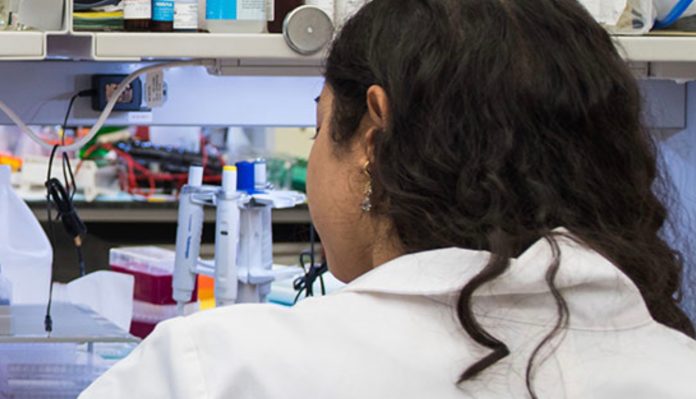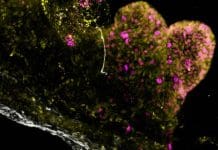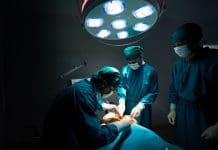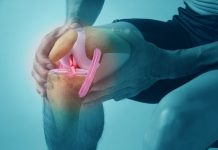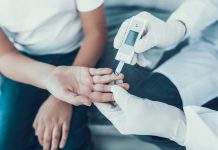Dr Michael Wangler, Assistant Professor at Molecular and Human Genetics Baylor College of Medicine and Katie Sacra, Director of Family Programs, Global Foundation for Peroxisomal Disorders, mother of TJ, discusses the impact of the COVID-19 pandemic on families with rare disease – especially peroxisomal disorders
The outbreak of the SARS-CoV-2 pandemic of COVID-19 disease has had a complex impact on patients with rare genetic diseases. Families who were already facing the challenges of a rare disease have faced new questions posed by viral and host genetics.
These families may be puzzled and concerned by the call towards protecting those with “pre-existing conditions” while simultaneously having the most to lose from lockdowns, loss of medical appointments and medical care and services, as well as the other unintended consequences of the public health responses.
Research, family support and resources
Since 2010, the Global Foundation for Peroxisomal Disorders (GFPD) has been a central hub for research, family support and resources for families facing rare peroxisomal disease. Peroxisomes are organelles found within all our cells and which drive very specific steps in fat metabolism and protection from specific biochemical toxins. Peroxisomal disorders can be divided into diseases that impact a specific biochemical pathway (single enzyme defects) and diseases that affect the entire peroxisome (biogenesis defects).
Many patients with peroxisome biogenesis defects simultaneously lack multiple functions of the peroxisome, and these patients comprise a clinical spectrum of severity, named peroxisome biogenesis disorders (PBDs) – Zellweger Spectrum disorders (PBD-ZSD). PBD-ZSD can range from mild disease in which patients may experience progressive hearing and vision problems after childhood, to intermediate disease in which infants may have feeding problems, low muscle tone and brain and liver disease. In severe PBD-ZSD, many cases will have medical issues from birth and may have intractable seizures, developmental abnormalities, and death in the newborn period.
Patients with PBD-ZSD are found to have autosomal recessive genetic mutations in a group of genes called the PEX genes. In a typical PBD-ZSD family, the parents may each be a carrier of a mutation in a gene, such as PEX1. The misspelt version of the PEX1 gene in both parents does not impact their health and has no overt consequences for them. In the human genome, every gene, including PEX1 has two copies in each individual.
This apparent redundancy can protect a carrier from disease, but if two carriers for the same gene happen to have children, there is a 25% chance with each pregnancy that they could both pass on a mutation to their child. The PEX genes are known to be involved in the biogenesis of peroxisomes, but many questions about their function are under study by researchers.
The impact of the COVID-19 pandemic
As integral team members of the GFPD, we are part of a group dedicated to the research, medical care and family support for patients and families with peroxisomal disorders, such as PBD-ZSD. In preparation for a recent discussion of rare disease and COVID-19 which was presented at Baylor College of Medicine Evenings with Genetics, we explored the issues with families dealing with PBD-ZSD amid COVID-19. However, even more than concerns about the virus, we noted that our families had experienced a severe and often unrecognised impact during the COVID-19 pandemic. Many have seen reduced frequency and quality of their medical care. Developments, such as much greater usage and reliance on telemedicine have had a mixed effect with more convenience for families but often a less attentive approach. Changes in education and school closures have disrupted the lives of families, and this is compounded in the PBD-ZSD families as they have come along with reduced services in the home, reduced access to therapy and reduced access to medical supplies.
A few specific examples that were shared with us range from the mental and emotional impacts to the physical regressions seen in several patients. The pandemic and its impacts were not able to be effectively communicated to many patients with PBD-ZSD due to their intellectual disabilities and combined hearing and vision loss. One patient displayed depression, anxiety, frustration, and increased outburst of anger when his world came to a stop for reasons no one was able to help him understand. His sleep and difficult behaviours increased, requiring medical interventions.
Several children exhibited increased weakness and change in tone due to the loss of regular therapies. These changes led to regressions in their ability to stand, sit and walk independently. Many families are seen by a variety of specialists at large hospital systems that were suddenly places they needed to refrain from going to. Travelling to and from these medical appointments became an even bigger challenge due to public transport and lodging. These changes resulted in many patients being over a year overdue for important monitoring and testing, but heart-breaking decisions had to be made when their hospital is several hours away in the middle of what was, at that time, an area with high COVID transmission.
One family shared how their biggest issue as a caregiver has been to watch their child be completely left out of the conversation. They shared, “The disability community and their needs have been completely ignored like they don’t exist, and nothing has been put in place to support individuals with disabilities or their families. As a caregiver and a mom, to know my child isn’t on anyone’s agenda to help, is infuriatingly insulting.”
Another new challenge for patients and families has been the changes to hospital policies on visitors and caregivers. Many parents and caregivers experienced only one caregiver being allowed per 24-hour cycle. This meant no breaks, not seeing other family members, and not having the needed support. Only allowing one person to accompany the patient was often the case for medical visits and procedures too. Parents and caregivers were left to care for their loved one while simultaneously trying to discuss critical health issues and managing care with the medical professionals. One mom shared, “I would stress myself out for days before one of my daughters’ six-hour infusions, that I would almost make myself sick knowing that I had to tackle this alone without any support from my husband or another family member. Even a doctor’s appointment would cause anxiety because I would have to comfort and calm my daughter down after her exam while listening to the doctor answer my important questions.”
Some parents faced decisions they never thought they’d ever have to make when learning of hospitals not allowing parents of adult children to stay with them. Parents quietly acknowledged to one another how they would not be taking their medically complex adult children with deaf-blindness, who rely on them to communicate and access their environment, to the hospital for care.
Isolation is something many patients and families experience in the rare disease community, but the pandemic magnified it. One parent described it as “it felt like we were put in timeout on our already deserted island, because of the interventions and therapies being stopped, limited in-home service and fear of going out in the world.
The pandemic has shed a light on many areas needing change while also creating several positive changes. Access to telehealth and other rare disease events has been a positive for many families and individuals with rare diseases. There has been an increased awareness of caregiver and family support needs, including the need for priority of vaccine access for these often-unpaid caregivers and parents of children with PBD-ZSD and other rare diseases. However, shedding a light on these critical issues and creating awareness is only the beginning.
Looking ahead: Rare diseases research
Now facing 2022 and entering the third year since COVID-19 was first noted, the GFPD is looking to government and industry leaders to consider the impact on rare diseases, such as PBD-ZSD. With the availability of vaccines and more medical experience and options to deal with COVID-19, we argue that individuals with PBD-ZSD should not be left out of the conversation. More research into specific host genes in rare diseases is needed in the SARS-CoV-2 research field. More specific education and facts about rare diseases are needed with emerging technologies, such as mRNA vaccines. For example, some families have asked if future gene therapy options might be affected by vaccination if they utilise viral vectors that have been employed in COVID vaccines. For this issue, the mRNA technology and paying close attention to different viral vectors can help families in this unique situation navigate the concerns. Finally, is the research funding shifting away from rare disease genetics? Is it more difficult to conduct rare disease research now? While new challenges have emerged, new opportunities in telemedicine and rare disease work have also emerged.
In conclusion, individuals with PBD-ZSD have faced new challenges during the pandemic. Many rare disease families already likely had limited interactions to reduce infection before the pandemic. However, in 2021, Dr Mousumi Bose authored an article for rare disease day sharing about these new challenges and how “the consequences of these challenges can mean grave health regressions for the child and further deterioration of the entire family’s mental and physical health.” On Rare Disease Day, check in on special needs families | Opinion – nj.com.
She went on to discuss how the importance of the “community surrounding a family affected by a rare disease is crucial to supporting its overall quality of life.” We believe that the community that surrounds rare diseases needs to be supported now more than ever.
Please note: This is a commercial profile

